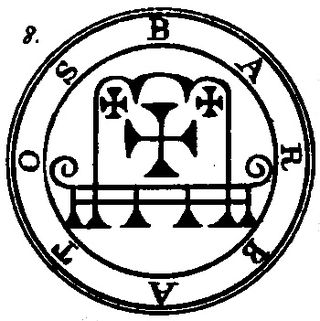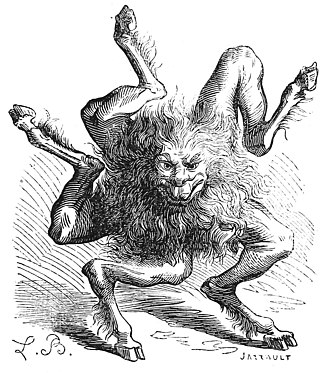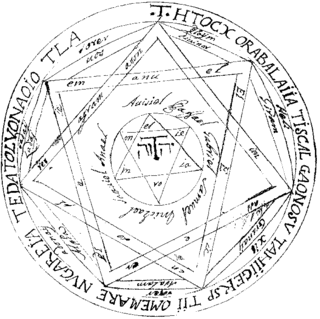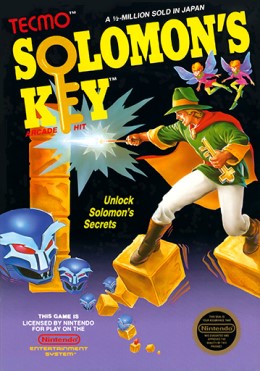The Key of Solomon is a 14th or 15th century pseudoepigraphical grimoire attributed to King Solomon.
Key of Solomon may also refer to:

A grimoire is a textbook of magic, typically including instructions on how to create magical objects like talismans and amulets, how to perform magical spells, charms, and divination, and how to summon or invoke supernatural entities such as angels, spirits, deities, and demons. In many cases, the books themselves are believed to be imbued with magical powers, although in many cultures, other sacred texts that are not grimoires have been believed to have supernatural properties intrinsically. The only contents found in a grimoire would be information on spells, rituals, the preparation of magical tools, and lists of ingredients and their magical correspondences. In this manner, while all books on magic could be thought of as grimoires, not all magical books should be thought of as grimoires.

The Grand Grimoire, also known as Le Dragon Rouge or The Red Dragon, is a black magic goetic grimoire. Different editions date the book to 1521, 1522 or 1421. Owen Davies suggests 1702 is when the first edition may have been created and a Bibliothèque bleue version of the text may have been published in 1750. The 19th-century French occultist Éliphas Lévi considered the contemporary edition of Le Dragon Rouge to be a counterfeit of a true, older Grand Grimoire.
DOA may refer to:

Barbatos is the 8th spirit named among the list of 72 demons in The Lesser Key of Solomon. According to grimoire tradition, he holds the rank of Duke, and may appear when the sun is in the sign of Sagittarius. When summoned, he appears "with four noble kings and their companions in great troops". Barbatos grants the ability to understand the spoken language of animals, such as the singing of birds and the barking of dogs. He reveals hidden treasures that have been concealed by the enchantment of magicians, gives knowledge of past and future events, and reconciles disputes between friends and those who hold power. Barbatos has 30 legions of spirits under his command, and once belonged to the angelic order of Virtues.

Buer is a spirit that appears in the 16th-century grimoire Pseudomonarchia Daemonum and its derivatives, where he is described as a Great President of Hell, having fifty legions of demons under his command. He appears when the Sun is in Sagittarius. Like Chiron, the chief centaur of Greek mythology, he teaches natural and moral philosophy, logic, and the qualities and uses of all herbs and plants, and is also capable of healing all infirmities and bestows good familiars.

In demonology, Malphas is a demon who first appears in Johann Weyer's Pseudomonarchia Daemonum. That work and the Lesser Key of Solomon describe him as a mighty Great President of Hell, with 40 legions of demons under his command and is second in command under Satan. He appears as a raven, but if requested, will instead resemble a man with a hoarse voice. Malphas is said to build houses, high towers and strongholds, throw down the buildings of the enemies, destroy the enemies' desires or thoughts and all that they have done, give good familiars, and quickly bring artificers together from all places of the world. According to the writers, Malphas accepts willingly and kindly any sacrifice offered to him, but then he will deceive the conjurer.

The Key of Solomon is a pseudepigraphical grimoire attributed to King Solomon. It probably dates back to the 14th or 15th century Italian Renaissance. It presents a typical example of Renaissance magic.
Red Dragon may refer to:
Musou or Musō may refer to:

Solomon's Key is a puzzle game developed by Tecmo in 1986 for an arcade release on custom hardware based on the Z80 chipset. It was ported to multiple systems including the Nintendo Entertainment System and Commodore 64. The PC Engine version was known as Zipang and the Game Boy version as Solomon's Club. A prequel, Solomon's Key 2, was released in 1992 for the NES. The game was also ported to Virtual Console for the Nintendo 3DS and Wii U in 2006 and later to Nintendo Switch Online in 2018.

The Sixth and Seventh Books of Moses is an 18th- or 19th-century magical text allegedly written by Moses, and passed down as hidden books of the Hebrew Bible. Self-described as "the wonderful arts of the old Hebrews, taken from the Mosaic books of the Kabbalah and the Talmud", it is actually a grimoire, or text of magical incantations and seals, that purports to instruct the reader in the spells used to create some of the miracles portrayed in the Bible as well as to grant other forms of good fortune and good health. The work contains reputed Talmudic magic names, words, and ideograms, some written in Hebrew and some with letters from the Latin alphabet. It contains "Seals" or magical drawings accompanied by instructions intended to help the user perform various tasks, from controlling weather or people to contacting the dead or Biblical religious figures.
Ninja Gaiden is a series of video games released by Tecmo.
Clavicula Salomonis may refer to:
The Grimorium Verum is an 18th-century grimoire attributed to one "Alibeck the Egyptian" of Memphis, who purportedly wrote in 1517. Like many grimoires, it claims a tradition originating with King Solomon.

Tecmo Classic Arcade is a collection of classic Tecmo arcade games for the Microsoft Xbox. This collection was released on September 13, 2005 in the U.S., October 21, 2005 in Europe and October 27, 2005 in Japan, and contains all of the games that Tecmo Hit Parade includes along with four more games. This game was published and developed by Tecmo.
The following are lists of demons:

Koei Tecmo Holdings Co., Ltd. is a Japanese video game, amusement and anime holding company created in 2009 by the merger of Koei and Tecmo. Koei Tecmo Holdings owns several companies, the biggest one of those being its flagship video game developer and publisher Koei Tecmo Games that was founded in 1978 as Koei.
Clavis may refer to:
The Magical Treatise of Solomon, sometimes known as Hygromanteia or Hygromancy of Solomon, the Solomonikê (Σολομωνική), or even Little Key of the Whole Art of Hygromancy, Found by Several Craftsmen and by the Holy Prophet Solomon, refers to a group of similar late Byzantine-era grimoires purporting to contain Solomon's instructions to his son Rehoboam on various magical techniques and tools to summon and control different spirits, those spirits' powers, astrological beliefs, select charms, different means of divination, and the magical uses of herbs.
Omega Force is a Japanese video game developer and a division of Koei Tecmo, founded in 1996 by Akihiro Suzuki and Kenichi Ogasawara, and is best known for the Dynasty Warriors video games.